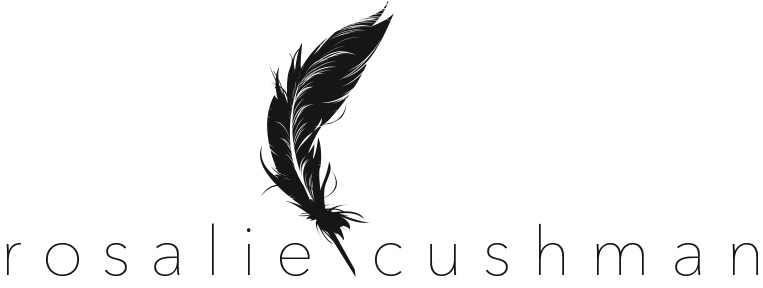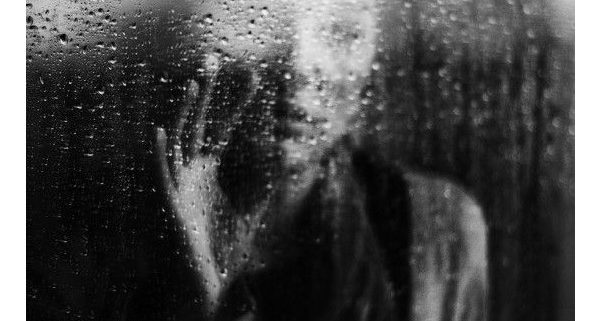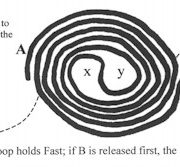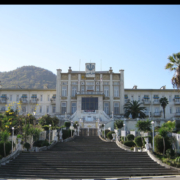1977 Tehran, IRAN—As far away from my world, further than the 10,000 miles suggest. The first 48 hours after Habib is arrested I’m still in a sort of shock-yet-arrogantly-pissed-off state. It becomes clearer however, that there’s little I can do to impact the situation. I am a stranger in a strange land after all.
POWERLESS
Nasser makes clear to me that I will not be allowed to visit my husband. As it turns out, neither can he. Savak, the Shah’s secret police, hold all the cards. After a couple days, I go to Nasser’s house in Karaj, a suburb about 30 miles from Tehran. His house is in a small but newer housing development on the edge of town. Oddly, he and I both maintain a peaceful coexistence which has not always been the case in our relationship. Back before Habib and I were married, Nasser’s disdain for me was obvious. However thin the thread, it is just as obvious now that we both share a strange kinship in tragedy.
As the days drift by like so much dead wood in a fetid river, Nasser is kind to me. He introduces me to Mohammed and Soriah, two doors down from his house in Karaj. They both speak English, which is a godsend, Mohammed having been in the US while he completed a PhD in economics. An added benefit is that he is funny, energetic and engaging, Soriah, warm, compassionate and sympathetic.
I wander down to my new friends’ place most days while Nasser has gone into Tehran to his engineering firm, and to push for Habib’s release. Sometimes my new friends feed me but I have noticed no matter what I eat, I’m starting to get the runs! I deal with this and my overall stress load by smoking up a storm! If I’d had a pacifier I would have used that too!
TERROR MANAGEMENT
After I-don’t-know-how-much-time, my diarrhea becomes chronic and I’m losing a lot of weight. Nasser takes me to a doctor who diagnoses me as pregnant. Impossible! I’m on the pill!! After ten days or so, it’s also clear Habib may be held longer than I’d ever believed possible. I read every book in English I can scrounge in Nasser’s house, as well as a few I brought myself. All this between walks alone in the little housing community and visits to Mohammed and Soriah’s. Still, I grow increasingly more nervous, frightened, and am filled with a sense of dread.
Some nights Nasser stays in Tehran while I grow lonelier and more isolated. At some point, he takes me to Tehran to stay with his aunt and her family for a few days. One of her daughters is attending university, an English literature major, at last a verbal lifeline and connection! We talk about the book Bury My Heart At Wounded Knee. What a strange story to bind over.
I press both Nasser and his aunt’s family to at least let me call my family back in Michigan. They have no idea what’s happening. Emphatically, No! The phones are bugged—it’s impossible to call as Savak will likely be listening, making it riskier for Habib. These Iranian relatives try to distract me, cheer me up, and while small snippets of time I feel some relief, it never lasts long.
PATER
Nasser sends for his dad and I meet my father-in-law, Aziz, for the first time. He knows no English and my limited Farsi offers only a small link for communication. A short, slightly portly man, Aziz has a generally happy face, cheerful even, given the circumstances. But our greatest link is obvious, a grim potent fear we could lose a young man we both love. The weight of this lies just beneath our individual and collective interaction like quicksand lurking just below.
Aziz takes me to a large bazaar one day and buys me all sorts of things—a dress, gold jewelry, and other trinkets. This kind of shopping is new to me. Not only is the bazaar’s narrow lane lined with shops on both sides, it is filled with lots of booths, creating a carnival feel. Owners hawk their wares to draw in customers. It’s loud and boisterous with everyone talking at once, indicative of the Iranian culture. Once these hawkers smell a live prospect, they ratchet up the volume and start haggling. I find it intriguing but alien. Their energy is unnerving for me, aggressive even, yet I find the whole environment fascinating and oddly for a time, I forget about Habib.
The smells in this place are intoxicating, filled with foreign spices and sweat in the 110 degree heat, fragrant and pungent. We stop at one stall and Aziz buys me pistachios, which I love. If ever Iran was to claim a National nut it would be pistachios. There are empty shells all over the paved walkways for foot traffic. We open the nuts and donate more to the ground beneath.
BACK IN KARAJ
It’s been more than two weeks since Habib’s arrest and I’m becoming more scared by the day. I deal with the fear and stress by smoking, perpetually smoking. My dysentery increases. One day while I’m down at Mohammed and Soriah’s they have visitors, a couple, who have come for lunch. I’m off by myself after we eat, on the other side of the room, observing. They speak in Farsi and I understand very little, they speak so fast. I might as well be on the other side of the planet which, quite frankly, I wish I was!
After they leave, Soriah comes over and we talk. She tells me the husband has given me a prescription for my dysentery. Evidently he used to be a doctor but can still write prescriptions. I ask her why he’s not practicing medicine anymore and she tells me he lost his license after being arrested by Savak and held in prison for three years.
THREE YEARS?
She tells me he had been tortured repeatedly. One way they tortured him was to hang weights from his testicals for extended periods of time, leaving him unable to have children. I am horrified, knowing Habib could also be tortured and maybe in this way too. I think my heart stopped for a whole minute at this thought, shocked as if I’d been hit with a high voltage cattle prod.
This whole episode is a turning point for me. While I want Habib back, I am shocked to think I want to get out of Iran more than anything—with or without him. I would be ashamed of this if I didn’t also know I was hanging on by the thinnest of psychological threads. A new sense of awareness dawns on me, one so pervasive not just because of a heightened terror but also because for the first time I realize not only could I leave Habib behind but also because I realize I’m as imprisoned as he is, just in a different way. I do not yet know I can’t get out of this country by myself just yet!
Of course I can only process this feeling of emotional betrayal alone, filled with shame yet loaded with an innate sense of self preservation. I tell myself it’s natural, warranted, to be expected. It’s the way of the animal kingdom, to survive. Yet in all my naïveté I feel the tonnage of guilt. I wish I could talk to my friend, Carol. She and I process everything with all the psychological effects of the neurotic which we both acknowledge that we are. But of course I can talk to no one about this—not one single soul! My fear mounts, could I go insane here?
AND THEN
Back in Nasser’s lonely house I’m glad he’s not there a lot. Gives me time to just be ‘me’ — the me I recognize still tethered to some sense of my American-ness. I can wring my hands and smoke more without the disapproving presence of Habib’s oldest brother. Nasser and I had always had a tenuous relationship at best while he was in America. It had become much more accepting since Habib’s arrest, much more. Far from warm, it was closer, respectful in a way, and more compassionate on both of our parts. Even so, his demeanor was still more guarded and reserved than is typical in the average American male. While it felt respectful of me now, more open, his attitude was still paternalistic in nature, unequal. Regardless, I am grateful for the improvement.
I continue my walks around the little housing community alone, imagine living here and can’t wrap my head around it. How naive I have been! My visits at Soriah and Mohammed’s house also continue. What would I do without them? The medicine helps my dysentery a lot though I still have some runny stool, just not as often, not as extreme. At least I don’t have to squat on the floor level toilets as often, which is a relief in and of itself.
A NEW KIND OF FEAR
Nasser has been gone for a few days in a row but all of a sudden, he and Mohammed burst through the door, anxious and rushed, bringing with them a weather front of fear. “What’s going on?” I ask. “We have to get rid of all the books,” they spit out, staccato fashion. They race from one room to another collecting books and bagging them. Their combined fear escalated, infecting me too, implying they are at risk with Savak, and maybe I am as well! Oh my, a new level of terror has infected me!
After gathering every book they can find that might be remotely perceived as anti-Shah, they leave. Again, I’m alone, again to imagine something worse than what has already occurred. How much more can I take? I do not know. I only know the tension tightly wound inside of body and soul is ratcheted up yet again. What is my breaking point?










Wow! Your experience was even worse than I gathered when you occasionally mentioned it. This is a gripping, intense and huge dose of your horrific 1977. I think that nightmare could be the source of a brilliant, engaging piece of fiction.
Ironically it was the best year of my life meeting, dating and marrying Kris, then moving to California.
Always good to read your essays.
Thank you so much, Bob. There’s more to the story, to say the least (which I am working on.) Anyway, I appreciate your comments. Sounds like you’re doing well. And definitely enjoying your retirement with Kris.
Wow Rosalie. Just wow. Now I’m hanging on the next installment
Thanks, Jen. Huge hugs & love!
What a cliffhanger, Rosalie. So happy you’re writing. Incredible adventure during such a historic time. Can’t wait for the next chapter!!!